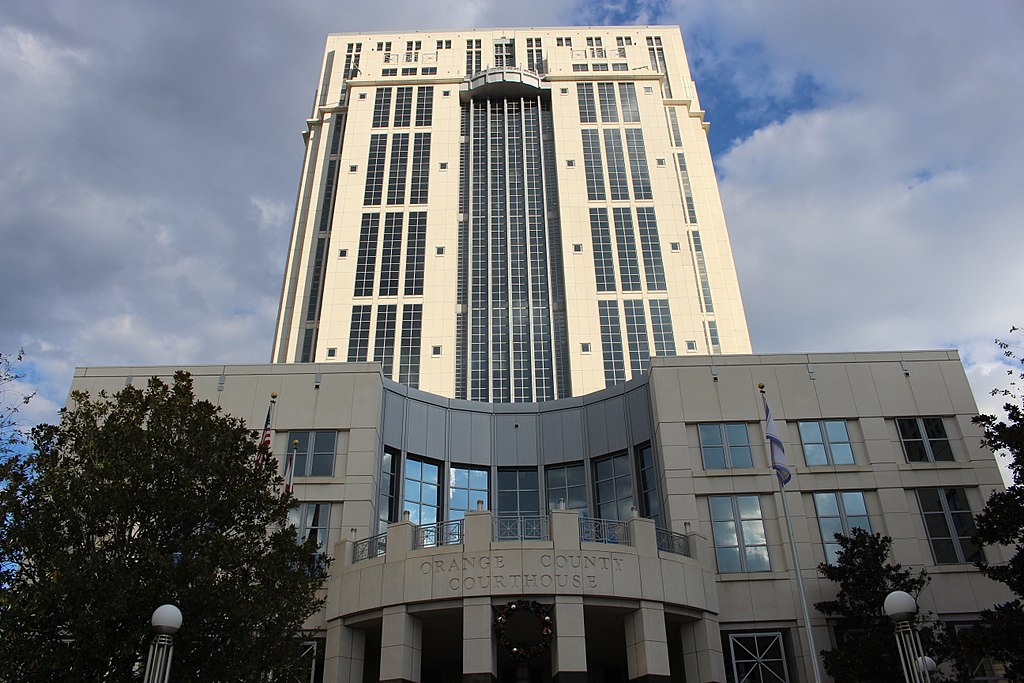ORLANDO, Fla. — State Attorney Aramis Ayala, a polarizing prosecutor who sparked a national debate after declaring that she wouldn’t seek the death penalty in her district, announced today that she won’t run for re-election.
Before her announcement, two challengers had already filed paperwork to run for Ayala’s seat in 2020 -- Ryan Williams, a prosecutor who worked under Ayala, and Kevin Morenski, a private attorney. Both said they expect Ayala’s second-in-command, Chief Assistant State Attorney Deborah Barra, to join the race.
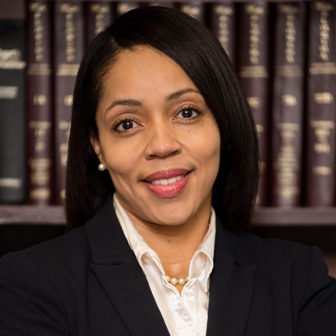
Office of the State Attorney
Aramis Ayala, state attorney for Orange and Osceola counties.
Ayala drew national and international attention after she took office in 2017 and declared that she would not seek the death penalty in any cases. The move -- which she was forced to reverse after the governor challenged her and the state Supreme Court sided with him -- played a role in her decision not to seek re-election.
“After the Florida Supreme Court’s decision on the death penalty, it became abundantly clear to me that death penalty law in the state of Florida is in direct conflict with my view and my vision for the administration of justice,” Ayala said today in a video posted to Facebook.
She said she would serve out her term, unveiling new policies and programs that she expects to last for years, and then “move forward and continue the pursuit of justice in a different capacity.”
[Related: Jacksonville, Tampa Prosecutors Pursue Aggressive Reform Agendas With Public Support]
In a recent email interview, Ayala had sounded steadfast in her positions.
“Data shows that ‘tough-on-crime’ policies don’t work. They divide communities and drive mass incarceration,” she wrote. “As State Attorney it is important to focus on cultural shifts that expand our thinking about the image of justice and our responsibility as prosecutors.”
Rise to office
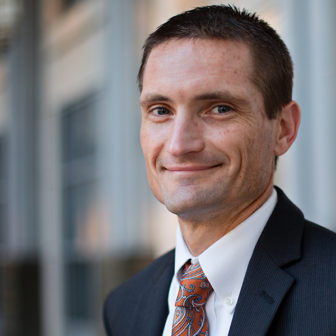
Ryan Williams
Ryan Williams
In 2016, Ayala had decided to run for office against her own boss — the state attorney of Florida’s Ninth Judicial Circuit, which covers Orange and Osceola counties, including Orlando.
The political wind was at her back. Then-State Attorney Jeff Ashton, a fellow Democrat, had been caught up in a scandal involving dating website Ashley Madison. And anti-Ashton advertising had begun popping up.
Williams was a fellow Ninth Circuit prosecutor with Ayala when she declared her candidacy and saw her at a function shortly before the ads appeared. At that event, she told him a surprise was coming, he said.
“Lo and behold, there are television ads running during the Olympics, which is unheard of for a state attorney race,” said Williams, a Democrat. A wave of mailers came out too, painting Ashton as racist, Williams said. He was dismayed that Ayala did not refute them.
The ads had been funded by a political action committee backed by left-leaning billionaire George Soros, who had injected $1.4 million into the race. Ayala has maintained that she never spoke with Soros, but she was one of about two dozen candidates in local prosecutor races around the country who were supported by Soros-funded political action committees.
Reporters discovered that Ayala’s husband had served seven years in prison for drug conspiracy and counterfeiting checks. She spun it as a positive — the couple had a deep understanding of the school-to-prison pipeline — and won 57% of the vote in the Democratic primary. She then easily won the general election against a write-in candidate, becoming the first black person to be elected a prosecutor in Florida.
It was a significant victory. Data has shown that 95% of prosecutors are white, which researchers say could be a factor in blacks getting charged with more severe crimes than whites and serving more time in prison.
A high-profile murder
Weeks after Ayala’s election, in December 2017, a man named Markeith Loyd fought with his pregnant girlfriend, then shot her dead on her porch. Police searched for Loyd for a month, asking the public for help.
In January 2018, Orlando police Sgt. Debra Clayton was shopping in a Walmart when another customer approached and told her Loyd was in the store. Clayton confronted him outside and commanded him to stop. Loyd shot her four times, killing her.
It took nine days to capture him. A second law enforcement officer died in a motorcycle crash during the manhunt.
Ayala took office Jan. 6. Loyd was caught 11 days later and indicted by a grand jury Feb. 15.
Williams was handling three of four capital death penalty cases in the prosecutor’s office around that time. As the cases progressed, the state attorney’s office would need to decide whether or not to pursue the death penalty in each of them, because the decision triggers certain procedural rules. Williams said he raised the matter in a staff meeting.
“‘What are we going to say when the judge asks about the death penalty?’” he recalled asking. “I got no response.”
Ayala asked him to bring in a murder victim’s family so she could consider their feelings and he arranged the meeting.
Soon after, Williams said, Ayala told a community group she would not be seeking the death penalty. The group alerted the reporters, who called the office for confirmation. Caught off guard, Ayala’s staff scrambled.
“She and I were frantically calling victims” to give them a heads up on the news, Williams said.
The following morning, standing in front of the Orange County Courthouse with a cluster of television microphones clipped around her podium, Ayala held a press conference.
“I will not be seeking the death penalty in cases handled in my office,” she said.
While other prosecutors around the country had been known to avoid bringing death as a punishment, none had so boldly declared it as an across-the-board policy.
Ayala told the crowd that her decision was based on research, not her personal opinion. Twice in two years, Florida’s death penalty statute had been ruled unconstitutional, throwing cases into limbo. And the death penalty, she said, is not a deterrent to crime. With an average of 12 years from sentencing to execution, capital cases create long cycles of uncertainty. It costs the state $2.5 million more to prosecute a death penalty case than one in which prosecutors seek a life sentence, she said.
While some cheered Ayala’s stance — she would later be honored be honored by social justice groups — others found fault. Legal experts questioned how she could declare a blanket policy against the death penalty in all cases without considering individual circumstances, especially when it was part of Florida law. Others said the move didn’t take victims and their families into account.
Immediately after Ayala’s announcement, then-Gov. Rick Scott, a Republican, took two dozen cases away from her office and transferred them to a prosecutor in neighboring Ocala. Critics called for her to be fired for dereliction of duty. A courthouse administrator wrote on Facebook that she should be “tarred and feathered, if not hung from a tree.”
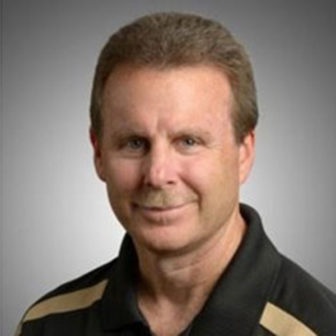
University of Central Florida
Aubrey Jewett
Ayala’s announcement had come with no warning, said Aubrey Jewett, associate professor of political science at the University of Central Florida. It wasn’t a major platform in her campaign and surprised even her own supporters. And Loyd had a long criminal history.
“If you’re going to try to sway public opinion, it was not the best case to take on,” Jewett said.
Reporters later unearthed texts showing that a group linked to Soros had advised Ayala to hold the press conference. Skeptics wondered how much the Soros group had dictated her anti-death-penalty position after pouring money into her campaign.
Williams was angry. He felt that Ayala had never truly considered the feelings of the victim’s family she had met with, and that she’d just used them for optics. He quit Ayala’s office and moved to the state attorney’s office in Ocala in order to stay with the death penalty cases. He said Ayala retaliated by withholding case files and blocking him from using office space.
Republican opponent
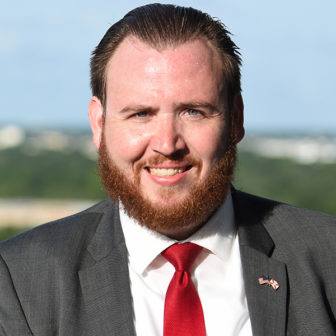
Morenski Law
Kevin Morenski
Just four days after Ayala’s anti-death penalty announcement, Morenski, a Republican attorney in Orlando, filed paperwork to run for her office in 2020. He interpreted the declaration as “her telling surrounding counties, ‘If you want to commit murder, come to Orlando, because we’re not going to seek death.’”
Morenski, a former paramedic who earned his law degree from Florida State University and started his own criminal defense practice in 2013, discussed the 2020 possibilities with like-minded colleagues. They speculated that Ayala would seek higher office and that other prosecutors would seek her place, running as Democrats in the heavily left-leaning region.
Someone needs to run for Ayala’s seat as a Republican, Morenski’s colleagues thought. Morenski calculated that any prosecutor who ran would be seen as Ayala’s heir apparent. He could be the outsider, representing conservative values like personal responsibility and the fight against government overreach. He said he expects to win votes from individual blue-collar, rank-and-file cops.
That said, Morenski has his own thoughts on criminal justice reform. He believes many cases are overcharged and wants to give assistant state attorneys more autonomy to decide what charges to bring, which he said would improve efficiency.
Opioid cases should be handled in drug courts, he said. He would start a veterans’ court modeled on one in Florida’s Fifth Circuit. He also thinks the juvenile system needs more focus on education and rehabilitation. Though he has never worked in the state attorney’s office, he said there’s a sense that juvenile cases aren’t handled by the best attorneys.
”You’re on the way out if you get sent over to juvenile,” he said. “The files are sealed in all those cases, so you can’t do harm” and embarrass the department.
Morenski has raised only $580 so far — from himself. His campaign has been largely dormant, but he said he’ll ramp up efforts as the election nears.
Jewett said the Orlando area is staunchly Democratic and has become about 50% Hispanic, up from about 20% in 2000. It’s unlikely — but possible — that a Republican could win, he said.
“I can envision a scenario where a moderate Republican who downplayed the party and focused on victims, who was for the death penalty in egregious cases and common-sense judicial reform, with the main focus on bringing bad guys to justice — maybe they could win,” Jewett said.
Democratic opponent
In February, Williams declared his intention to run for Ayala’s seat. He’s already won the backing of a police union representing 10 counties, an early endorsement the union acknowledged was meant as a rebuke of Ayala.
Williams said that Ayala’s announcement today “made clear she’s not going anywhere for the next two years and she’s going to make policy changes that last even after she’s gone.”
“I’ve always been running against Aramis Ayala and the policies she’s enacted, not the person,” Williams said, adding that if Ayala runs for Congress it “would be a gargantuan task on her part.”
Williams called Morenski unqualified to lead the state attorney’s office and supervise its 180 prosecutors. Morenski called Williams a “very good attorney” but said he “doesn’t have the presence” to be the state attorney.
Williams so far has raised $52,598 from 121 contributors. If elected, he said he would advocate for assistant state attorneys, who earn about $40,000 a year to start and work 50 to 60 hours a week.
He wants to lower mandatory minimum sentences for certain drug offenses. A misdemeanor marijuana charge, for example, can result in an offender losing his or her driver’s license for two years, which could prevent them from traveling to work.
Williams’ own father was convicted of embezzling $15 million from an employer, so he has seen both sides of the system, he said.
He has never witnessed an execution, but has considered the morality of the death penalty.
“This is the law in Florida,” Williams said. “If I am prosecuting anyone, especially a capital case, I am myself personally absolutely convinced of their guilt and that there is evidence beyond a reasonable doubt for every aggravating factor that we allege.”
It’s impossible not to get close to victims’ families during the yearslong process of trying cases, he said, but he is also obliged to respect the rights of defendants.
“At the end of the day, I don’t feel responsible if there’s a capital verdict, because the jury makes the decision,” he said. “I give them tools and information, and hopefully they follow the law and do what they think is right. And then, even if a jury decides that death is appropriate, a judge can override that decision in Florida.”
Williams and Morenski both expect Ayala’s chief assistant state attorney, Deborah Barra, to run -- which they each said they heard from current staff in her office. Barra did not respond to requests for comment for this story.
She led an investigation of law enforcement officers’ actions after the Pulse nightclub shooting (officers were cleared of wrongdoing) and leads a panel of attorneys in Ayala’s office that reviews capital cases and considers bringing the death penalty.
Williams said Barra is an excellent prosecutor and a personal friend, but her decision to keep working under Ayala marked a clear difference between them.
“I couldn’t be part of the system that was going to blatantly not follow the law,” Williams said. Barra’s choice indicates that she must “either agree with policies that she was asked to carry out, or stay silent on her disagreement and go along to get along.”
The outlook
Ayala challenged Scott’s authority to take cases from her, but ultimately the state Supreme Court sided against her. She rescinded her policy and set up a panel that would decide on a case-by-case basis whether to seek the death penalty. Meanwhile, Scott cut $1.4 million from her budget.
The uproar over her death penalty stance obscured some of her office’s other key initiatives, she said in a recent email interview. Ayala established a unit to review possible cases of wrongful convictions, implemented bail reform that allows some defendants be released on their own recognizance and launched “Project No/No,” which would shield the names of minors referred to the state attorney’s office who aren’t arrested or charged.
Ayala said she also expanded training, taking prosecutors to visit jails, prisons, the booking and release center, and death row.
In Florida, which spends about $2.4 billion to incarcerate about 96,000 people per year, politicians on the left and right have been inching toward consensus on criminal justice reforms. But a bill that passed in the just-ended legislative session amounted only to “baby steps,” as the Southern Poverty Law Center put it.
The measure will eliminate a rule that leads more juveniles to be prosecuted as adults, raise the threshold for felony theft to $750 and make more occupational licencing available to ex-felons, but it won’t significantly reduce the number of people in prison.
Jewett thinks that despite polarization over the death penalty, there is still an appetite for legislative criminal justice reform in Florida.
The left, he said, is concerned about fairness, and the law-and-order right is concerned about costs.
“Those incentives can work together to find common-sense solutions to cut the prison population,” Jewett said, “while still keeping people safe.”
This story has been updated.
This project was underwritten in part by The Vital Projects Fund.
